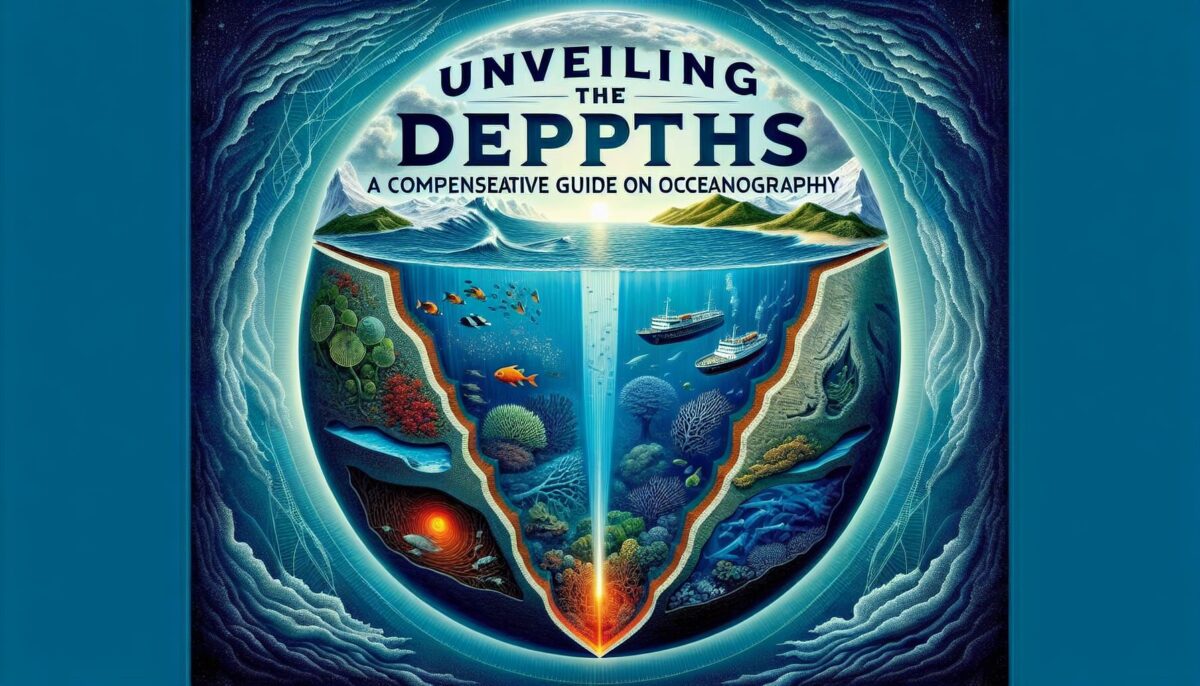Oceanography is an extensive field that focuses on the world’s ocean, studying the chemical composition, motion, and processes of the marine environment and the organisms that reside in it. From the turbulent surface waves to the deepest sea valleys, let’s delve into a detailed discussion of the discipline, its sub-domains, and its significance in this 1,500+ word exposé.
Oceanography, often referred to as marine science, plays a critical role in understanding, preserving, and managing the vast ocean ecosystem. It covers a vast range of topics including marine life, coastal erosion, estuaries, tides, marine pollution, and more. The discipline is typically divided into four branches—biological, chemical, geological, and physical.
Biological Oceanography
This branch, also known as marine biology, examines the various organisms within the ocean ecosystem. It studies their behaviors, lives, and interactions with both the physical and chemical aspects of their environment. Biological oceanographers endeavor to understand patterns of distribution and abundance of marine organisms from bacteria to whales, spanning the range from the tiniest microscopic algae to the largest mammal on Earth. You can learn more about marine life from the Smithsonian’s Ocean Portal.
Chemical Oceanography
Chemical oceanography focuses on the chemical composition of sea water and the processes affecting it. It encompasses the study of the behavior of the chemical elements within the Earth’s oceans. The acidification of ocean water due to increased carbon dioxide levels, processes that affect the salinity and temperature of water, and the cycle of nutrients are subjects of interest in this field. The study of marine pollution, including oil spills and marine debris, also falls under this category. National Oceanic and Atmospheric Administration offers a wealth of knowledge on these subjects.
Geological Oceanography
Under geological oceanography, researchers study the physical structure and history of the ocean floor. Concepts like bathymetry, marine geology, and movements of the seafloor fall under this branch. Scientists often investigate seafloor spreading, plate tectonics, and sea level changes. This USGS webpage provides visual insight into the subject.
Physical Oceanography
Physical oceanography revolves around the study of physical conditions and processes within the marine environment. This includes analyzing temperature, density, waves, currents, and tides, among other things. The mechanism behind tsunamis, storm surges, and coastal erosion are studied extensively under this domain.
Practical Applications
The importance of oceanography extends far beyond academic pursuit. It has substantial implications for predicting climate change, as the ocean plays a crucial role in the Earth’s climate and weather. Furthermore, our understanding of oceanography impacts navigation, shipping, and maritime trade. By predicting ocean currents and tides, it guides the course of ships, aiding in smooth-sailing voyages.
Moreover, oceanography plays a pivotal role in fisheries and aquaculture. It helps us understand the life cycles and habits of marine organisms that are commercially important, facilitating sustainable practices that preserve and protect marine biodiversity.
Lastly, matters of national security, like submarine warfare and coastal defenses, also rely on the principles of oceanography. Coastal management and establishing marine protected areas are heavily dependent on our understanding of these oceanic patterns and behaviors.
Keeping the Balance
With mounting threats like ocean acidification, coral bleaching, and continual exploitation of resources, oceanography becomes even more indispensable. Understanding the intricate dynamics of our marine ecosystem through the lens of oceanography is not just fascinating, but also pivotal in helping us maintain the delicate equilibrium of our planet.
The exploration and study of our planet’s oceans are far from over. With each wave that crashes onto our shores, each tide that ebbs, and every current that carries life across vast marine expanses, there is a world worth exploring. Whether it is to satiate human curiosity or to safeguard against the perils that threaten our blue planet, the study of oceanography is irrefutably invaluable.
“For whatever we lose (like a you or a me), It’s always our self we find in the sea.” – E.E. Cummings
Catch the next tide, dive deep, and cherish the wonders of the ocean realm. Learn more, explore more, and take a stand for our beloved oceans and the incredible biodiversity they foster.
For those looking for further reading, a detailed discussion on the various domains of oceanography is available at this link. The balance between understanding and preservation has never been so crucial. Cherishing the beauty, acknowledging the threats, and carrying out measures for the conservation of marine life is the call of the hour. This collective endeavor will uphold the grandeur, magnificence, and mystery of Earth’s mighty oceans.
